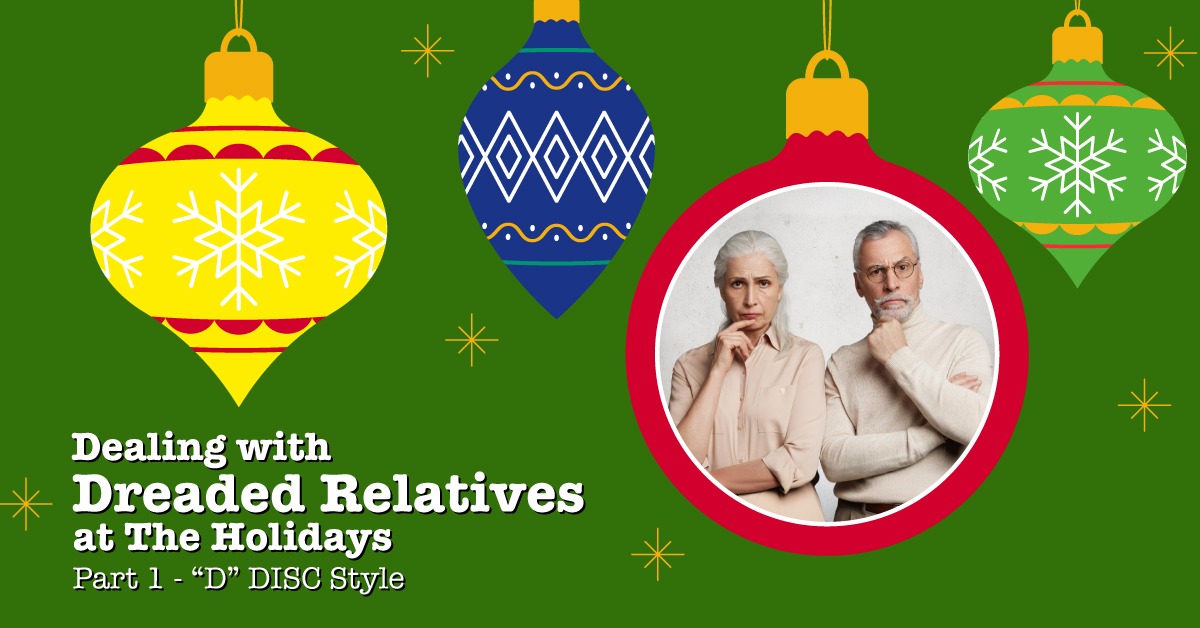It’s the holidays and you dread having to interact with Aunt Miranda or Uncle Freddie. So much so, you are thinking of not going to the family event. But you MUST go, or be a family outcast for life.
How do you deal with that D.I.S.C. behavior style you can’t stand? Read below for how to deal with the “D” dreaded family member. Look for how to deal with the dreaded “I,” “S,” and “C” styled person in other articles from us.
Uncle Freddie has many of the worst “D” characteristics. He loves to pick that one characteristic you hate about yourself and then he confronts or picks on you about it. He is demanding, driven, and so competitive he downplays everything you do, while upgrading anything that is his or about him. He is pushy, ends people’s sentences, and is incredibly critical of others. There is more, but you get the picture.
The easiest way to deal with Uncle Freddie is to ignore him and keep away from him. But, oh my; he is sitting directly across the table from you at dinner, and you can’t escape him. First, take the initiative. Ask him “how are you doing” and then be quiet. Hopefully, he will go on for 20 to 25 minutes about himself or pick on someone else, leaving you alone. If that doesn’t work and he starts picking on you, use this second approach; listen and don’t get defensive or competitive with him. He will just double down. As soon as he stops or slows down for a few seconds, change the subject to something else or someone else. “Uncle Freddie, what do you think about ___, or what do you think about ___?” Shift the conversation in another direction. A third strategy is to get someone else at the table involved in the conversation, the person to the right or left of either of you. Be a little protective of that person, while you get them involved, or they may be very unhappy with you for “siccing” Uncle Freddie on them. “Cousin Steve, do you have an opinion on what we are talking about?” Guide Cousin Steve so he doesn’t get in competition with Uncle Freddie. He can’t win when competing with Uncle Freddie. That is one of the reasons Uncle Freddie is so dreaded by others.
A few other thoughts when interacting with Uncle Freddie or any intense “D.” Be clear, specific, and to the point, not leaving much space for misinterpretation. Be prepared with your comments or any “ask” you have for the other person. Be logical and non-emotional when interacting. Don’t waste their time, repeat comments or data, or trap them into a position. Create a win-win situation whenever possible, so they feel they have won, while not diminishing your position.
If you want to better master, communicate with, and/or live with/work with the “D” styled person, enroll in our newly modular DISC & Motivators Certification program (Module 1 is just DISC behaviors; click here to see & learn more) or more effectively use our individual, comparison, and/or team assessments (click here to see & learn more) and/or discover how to use the reports via our A-LRN videos (click here to see & learn more).




